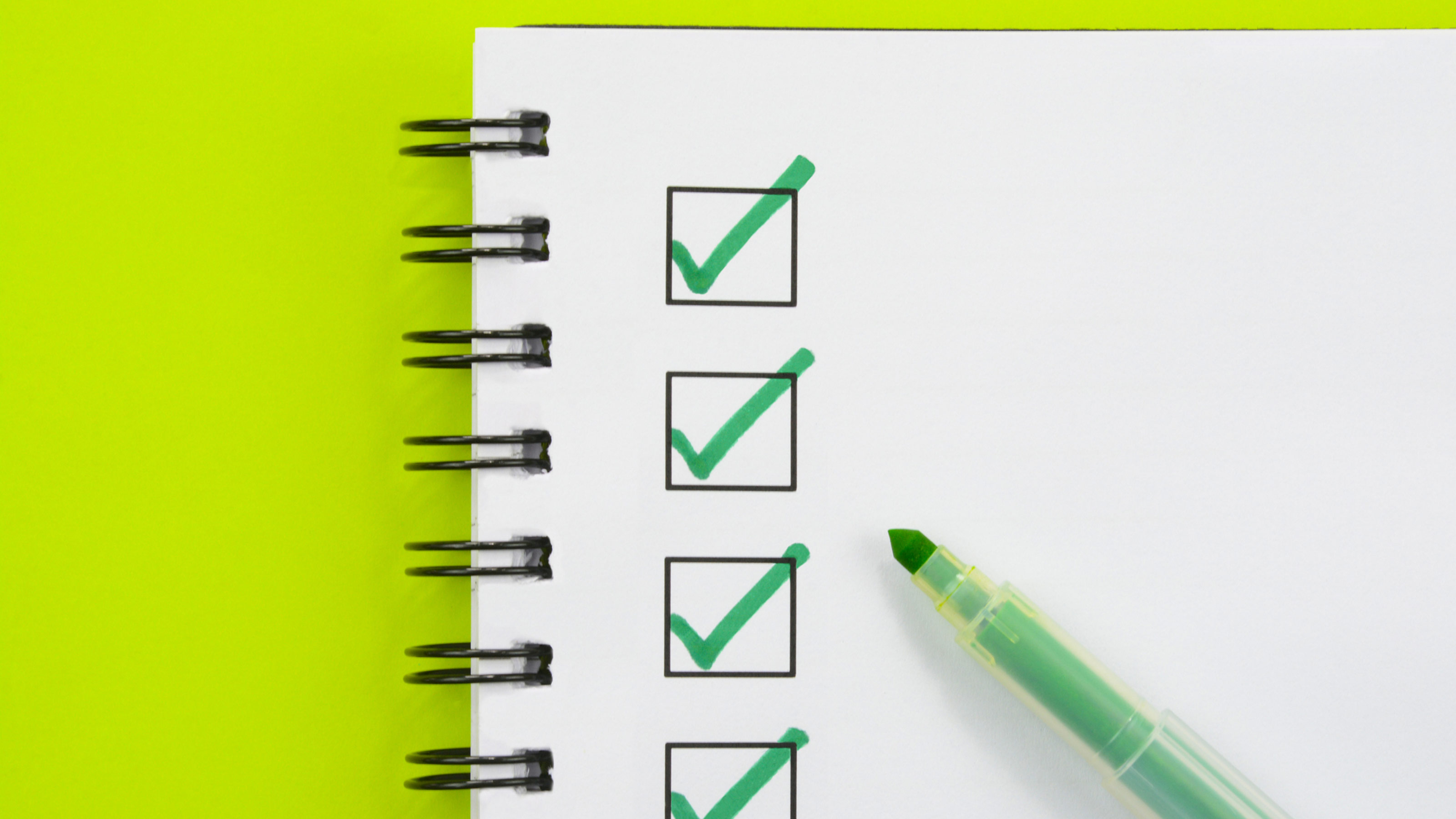How to Protect Your Estate: A Pandemic-Inspired Checklist
The pandemic has proved that preparation is critical, so if you’re ready to get your estate in order, here’s where to start.


Profit and prosper with the best of Kiplinger's advice on investing, taxes, retirement, personal finance and much more. Delivered daily. Enter your email in the box and click Sign Me Up.
You are now subscribed
Your newsletter sign-up was successful
Want to add more newsletters?

Delivered daily
Kiplinger Today
Profit and prosper with the best of Kiplinger's advice on investing, taxes, retirement, personal finance and much more delivered daily. Smart money moves start here.

Sent five days a week
Kiplinger A Step Ahead
Get practical help to make better financial decisions in your everyday life, from spending to savings on top deals.

Delivered daily
Kiplinger Closing Bell
Get today's biggest financial and investing headlines delivered to your inbox every day the U.S. stock market is open.

Sent twice a week
Kiplinger Adviser Intel
Financial pros across the country share best practices and fresh tactics to preserve and grow your wealth.

Delivered weekly
Kiplinger Tax Tips
Trim your federal and state tax bills with practical tax-planning and tax-cutting strategies.

Sent twice a week
Kiplinger Retirement Tips
Your twice-a-week guide to planning and enjoying a financially secure and richly rewarding retirement

Sent bimonthly.
Kiplinger Adviser Angle
Insights for advisers, wealth managers and other financial professionals.

Sent twice a week
Kiplinger Investing Weekly
Your twice-a-week roundup of promising stocks, funds, companies and industries you should consider, ones you should avoid, and why.

Sent weekly for six weeks
Kiplinger Invest for Retirement
Your step-by-step six-part series on how to invest for retirement, from devising a successful strategy to exactly which investments to choose.
If there is a poignant reality the pandemic has taught us all, it is to expect the unexpected. Since early 2020, our lives have been turned upside down. We have seen dramatic shifts in the stock market, civil unrest, a great resignation from work and endured a lot of time at home. As of late February, the virus has taken over 970,000 lives in the U.S. alone, which has had a heartbreaking and life-altering impact on so many families.
When it comes to unexpected events, there are few more difficult than the death of a loved one, and it can become more strenuous without a comprehensive estate plan in place. As we all adjust to the new normal and find ways to protect ourselves and each other, take this opportunity to understand the estate planning basics that ensure you and your loved ones are prepared for unexpected death.
Here are some essential considerations for estate planning in an era of uncertainty.
From just $107.88 $24.99 for Kiplinger Personal Finance
Become a smarter, better informed investor. Subscribe from just $107.88 $24.99, plus get up to 4 Special Issues

Sign up for Kiplinger’s Free Newsletters
Profit and prosper with the best of expert advice on investing, taxes, retirement, personal finance and more - straight to your e-mail.
Profit and prosper with the best of expert advice - straight to your e-mail.
Ensure You Have an Updated Will
Your will is a legally enforceable document that indicates how property or assets will be distributed after your death. Many people are concerned about where their assets will go after they die, and it is, therefore, important to have a will (for more details, read The Essentials You Need for an Estate Plan) and that you update it at regular intervals.
Even if your planned asset division is relatively simple, a will is a necessity to protect your assets and the loved ones who will receive them.
This is also a good opportunity to inventory your assets and take full stock of what needs to be considered within your estate plan, from real estate and automobiles all the way down to items like tools and clothing. If you are working with a financial planner, they will likely go through a checklist with you to complete this process. If not, there are free checklists available online.
Prepare a Power of Attorney for Financial Situations
The power of attorney is a document of legal authority that allows an individual to act on behalf of another individual (usually a family member) in case of incapacitation or illness. This is particularly important as it relates to being able to manage financial transactions when an individual is unable to do so. In some cases, the power of attorney may also be able to execute certain duties after one’s death, particularly if there is no estate executor.
The bottom line is that having someone you trust with power of attorney capabilities in case of incapacitation, illness or death is a good safeguard for your assets.
Designate Beneficiaries to your Retirement Account(s)
Ensuring that you have beneficiaries listed on your various retirement accounts — such as 401(k)s, IRAs and 403(b)s — will help protect them from many of the stressors that come after the death of a loved one. These beneficiary pronouncements override the will, so whoever is the estate executor will not have to figure out to whom these accounts go, nor will the accounts need to go through the costly probate process.
Likewise, it is easy to designate primary and secondary (in case of death of the primary) beneficiaries to these accounts. Usually it takes only a few minutes to designate or update.
Understand Estate Tax Laws
While federal estate taxes can be up to 40%, only the wealthiest of Americans have to worry about them. For 2022, the federal estate tax exemption is over $12.06 million for individuals and $24.12 million for married couples. Some states, however, impose their own estate taxes, and their exemptions aren’t as generous (for more, read 19 States with Scary Death Taxes). In addition, the federal estate tax exemption is set to decrease to $5 million (indexed for inflation) in 2026.
If this is a concern for you, you can start taking actionable steps, such as giving money under the annual gift tax exclusion. For 2022, each person can gift up to $16,000 per recipient. For those who are married, each spouse can gift $16,000 to the same recipient, for a total of $32,000 each, and you can make gifts to as many people as you like. This is a way to diminish the exposure of your estate to taxes.
Being aware of what your estate looks like and how it will be taxed is an important consideration to protect the ultimate beneficiaries of your estate.
Consider a Trust for Your Estate
If you are aware of where you want everything to go when you die, you might want to use a trust fund. A trust denotes how your assets will be disseminated after your death, and it allows for specificity. It also ensures that items within it avoid probate court, which can be costly for the estate. In doing this, it also ensures privacy around the specific assets and amounts, and it is harder to contest than a will.
Don't Forget What Matters, Including Your Pet
When navigating the estate planning process, it is easy to get caught up in the obvious concerns around financial assets, property, etc. However, you don't want to forget about some of the most important things in your life, like your pet. It's important to include them in your estate plan, whether it is a designation of who will pay its bills, who will take care of it or where it will be placed. In fact, you can even create a pet trust to manage your animal after you are gone.
Many people choose to delay estate planning as something they will do at a later date; however, it is increasingly important to prioritize this process for your own peace of mind and out of love for those you care about. As we've learned from the pandemic, unexpected events can blindside us when we least expect them. To ensure your assets are protected and distributed according to your will, take these noted steps now.
Once you have an initial estate plan in place, it will be much easier to make updates and changes as necessary. Don't let yourself get caught off-guard by unexpected circumstances; make estate planning a priority now for you and your loved ones.
Profit and prosper with the best of Kiplinger's advice on investing, taxes, retirement, personal finance and much more. Delivered daily. Enter your email in the box and click Sign Me Up.

Ron L. Brown, CFP, is the co-founder of Athlete Essentials and president of R.L. Brown Wealth Management. He is an expert in wealth management, retirement planning, tax and estate planning, and business management. Ron takes pride in his work to support clients in reaching their individual financial goals. He graduated from Asbury University in 2003 and earned his CFP, Certified Financial Planner, credential in 2017. Learn more at athessentials.com and rlbrownwealth.com.